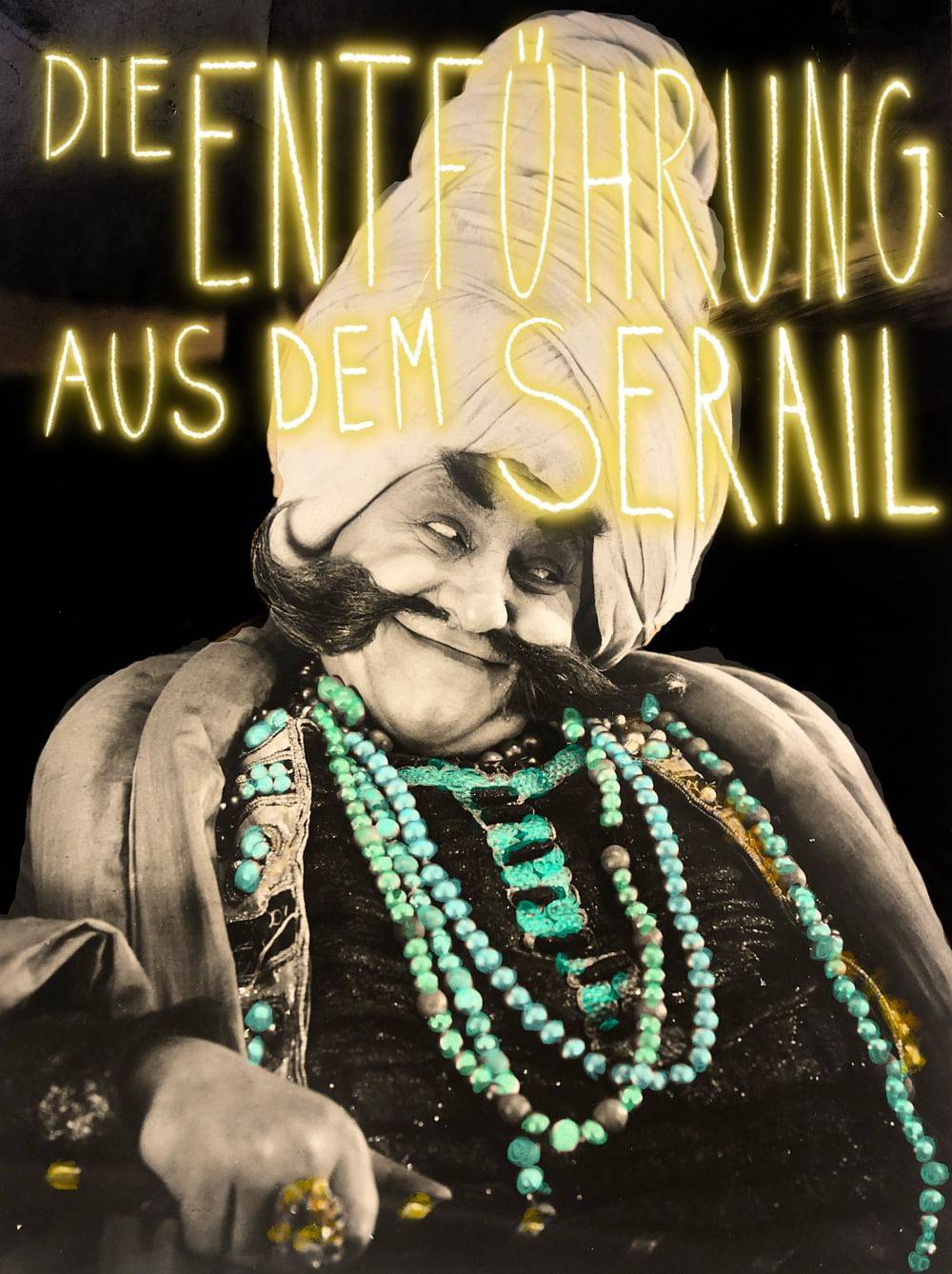An opera right in the middle of the clashes between Orient and Occident, man and woman, culture and nature, revenge and forgiveness. An opera about the clash of two different cultures, but in shifted perspective, as Mozart scholar Volkmar Braunbehrens writes: "Europeans, forcibly detained at the court of a Turkish ruler, experience a magnanimity of much higher morality than they know from their own European countries."
The new production of Mozart's Singspiel by the award-winning director Nurkan Erpulat, who was born in Turkey and came to Berlin as a student in the early 2000s, is intended to provide a new and authentic view of this work at the Volksoper. In the process, the focus will also be on the female characters: "Especially with regard to the female characters, there are also a lot of questions about sexual morality, honour and loyalty," says the director. But in the interplay of historical and political discourse as well as pain-filled poetry, the work always remains a comedy for Erpulat - a Singspiel in fact, a Volksoper, a "people's opera", in the best sense!
Act I – In front of the gate
After a long journey, Belmonte arrives at the seraglio of pasha Selim on the Turkish coast. At last, he is to meet again his beloved Konstanze, who has been kidnapped and sold to the pasha together with Blonde, her companion, and Belmonte's servant Pedrillo.
Belmonte first meets the palace keeper Osmin, who refuses him entry and reacts suspiciously and irritably to his question about Pedrillo. Nevertheless, he succeeds in speaking to Pedrillo. From him Belmonte learns that Konstanze is alive – but Pedrillo cannot dispel his doubts as to whether she is still faithful to him.
Then the pasha – accompanied by his imperial guard – returns from a pleasure cruise on the sea with Konstanze. Selim adores and courts her, but she does not return his affection. Instead, Konstanze's grief breaks out, and she reveals to Selim the reason for her persistent rejection: Her love for Belmonte and the promise of marriage she has made to him are unbroken. Konstanze's steadfastness only sparks Selim's interest even more ...
To get into the palace, a trick is needed: Pedrillo passes Belmonte off as a master builder in front of the pasha. The services offered are accepted, and finally the two get past Osmin and into the palace.
Act II – The paradise garden
In the seraglio’s garden there are all kinds of wondrous and sensual creatures – but Konstanze is completely caught up in her sadness. Blonde, on the other hand, has already come to terms with her new surroundings. Osmin's awkward advances prompt her to give a tutoring session on how a man should deal with European women.
At the same time, Selim courts Konstanze more and more urgently; she is torn between her decision to be faithful and the temptation to give in to the pasha’s desire. She remains steadfast, and affirms resolutely: "... in the end, death will set me free!"
Pedrillo, meanwhile, prepares everything for the escape: Blonde is to inform Konstanze of Belmonte's arrival, he himself incapacitates Osmin with wine. At last Belmonte and Konstanze see each other again: The joy about the reunion is mixed with mistrust, which also infects Pedrillo. Finally, the doubts are cast to the wind and the couples fall into each other's arms, longing for their future together.
Act III – The castle built of air
Pedrillo and Belmonte lie in wait to give their beloved girls the signal to flee. But Osmin bursts into the tense silence of the departure, stands in the way of the fugitives and swears vengeance.
Selim feels betrayed by Konstanze. Belmonte's attempt to pay a ransom for himself and the others also offends the pasha’s honor. The disgrace is even greater when Selim learns that Belmonte is the son of the man who years ago deprived him of the happiness of his life and forced him to emigrate. This seems to seal the fate of the lovers – Belmonte and Konstanze are comforted only by the thought that they will now pass into silence together.
But the pasha defies all expectations, proves his nobility, and gives Osmin the advice: “If you cannot win them with kindness, you have to get rid of them …”
Cast
- Conductor
- Alfred Eschwé
- Stage direction
- Nurkan Erpulat
- Set design
- Magda Willi
- Costume design
- Aleksandra Kica
- Lighting design
- Alex Brok
- Choir director
- Roger Díaz-Cajamarca
- Dramaturgy
- Magdalena Hoisbauer
- Choreography
- Gail Skrela
- Textfassung für die Volksoper bearbeitet von
- Sulaiman Masomi
- Selim, Bassa
- Murat Seven
- Konstanze, Geliebte Belmontes
- Rebecca Nelsen
- Blonde, englische Zofe Konstanzes
- Hedwig Ritter
- Belmonte, spanischer Edelmann
- Timothy Fallon
- Pedrillo, Bedienter Belmontes und Aufseher über die Gärten des Bassa
- Daniel Kluge
- Osmin, Aufseher über das Landhaus des Bassa
- Stefan Cerny
Photos and Videos
For all those who use a screen reader, a description of the visual aspects of the performance (set design, costumes...) follows here instead of the photo gallery.


.jpg)
.jpg)
.jpg)
.jpg)
.jpg)
.jpg)
.jpg)
.jpg)
.jpg)
.jpg)
.jpg)
.jpg)
.jpg)
.jpg)